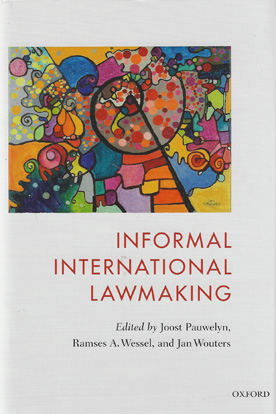We will be closed from 5pm Thursday 17th April for the Easter Bank Holidays, re-opening at 8.30am on Tuesday 22nd April. Any orders placed during this period will be processed when we re-open.

Informal international lawmaking is a term used to describe the process by which new international legal norms are created outside of the normal fora for negotiation. The outcomes of these processes are not codified in treaties or conventions and thus remain non-binding. They are also characterized by the involvement of non-traditional actors, such as regulators and agencies.
This book critically assesses the concept of informal international lawmaking, its legal nature, and impact at the national and international level. It examines whether it is on the rise, as is often claimed, and if so, what the implications of this are. It addresses what actors are involved in its creation, the processes utilized, and the informal output produced.
The book frames informal international lawmaking around three axes: output informality (novel types of norms), process informality (norm-making in networks outside international organizations), and actor informality (the involvement of public agencies and regulators, private actors, and international organizations).
Fundamentally, the book is concerned with whether this informality causes problems in terms of keeping transnational lawmaking accountable. By empirically analysing domestic processes of norm elaboration and implementation, the book addresses the key question of how to benefit from the effectiveness of informal international lawmaking without jeopardizing the accountability necessary in the process of making law.